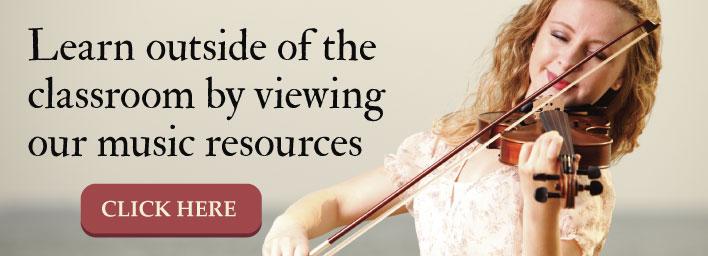How to Get the Most Out of Your Private Lessons

Private lessons are a smart way to hone your techniques and accomplish specific goals. For adult string musicians, private lessons may be the only way to fit lessons into a busy work and household schedule. For students, it can help to keep you at the edge of your learning curve, especially if your high school orchestra no longer challenges you.
Whatever your reason for seeking individual instruction, it's essential to optimize your lesson time so you get the most out of it. Here are a few tips:
1. Choose the right teacher
Word-of-mouth and online reviews are helpful, but ultimately you are the one who needs to feel comfortable, inspired, and confident with your string teacher. Spend the time and energy required to find the instructor who will motivate you to do your best and willing to customize lesson time to meet your interests (composition, different music genres, preparing for an audition, etc.).
After “interviewing” at least three instructors, you’ll have a sense of who you feel is best for your personality, playing level, and overall goals. This can take a few weeks, so take advantage of free, 30-minute sessions (which some instructors offer) where the two of you can work together and determine if you are a fit.
2. Work in a conducive environment
If you’re taking private lessons at a music school, in a designated lesson room, or in a teacher's office, this is already taken care of. If the instructor is coming to your home, it’s imperative that you create a “professional” or designated practice/lesson space that is a distraction and interruption-free.
3. Warm-up before you start the lesson
Don’t waste time doing scales and warmups during the lesson. That’s time you could spend learning something new. Instead, warm up right before the lesson on your own. Some music schools have warm-up rooms or empty spaces you can use for this purpose.
4. Set goals ahead of time
In the beginning, you’re learning the basics. Once you’ve moved into a more comfortable playing groove, Suggest to your instructor what goals you would like to set for yourself. Having goals (such as playing a particular passage more fluently, starting a more challenging piece, fine-tuning playing posture or bowing technique, work on improvisational skills, playing a piece entirely from memory, etc.), will keep your lessons structured and efficient.
5. Honor your teacher's recommendations and suggestions
Feeling uncomfortable, embarrassed, or resistant to a new practice, idea, or recommendation is a natural response. However, it can also block your ability to grow and evolve as a musician. When feelings of resistance creep up, honor them, but forge on anyway. By giving your teacher a chance, you’ll start to understand there is a method to their instruction.
Often, teachers select a specific piece of music or recommend a new technique to help you work on a skill or resolve a “bad habit.” Hopefully, if you’ve heeded the above advice about finding the right teacher, you’ll feel comfortable asking them “why,” and they’ll provide a logical answer. Similarly, express any discomfort to get it out in the open. This may lead to your teacher trying something different or offering an explanation of why they are recommending the composition/exercise/over-dramatic-posture, or whatever it is that concerns you.
6. Practice regularly
Private lessons will accelerate your learning curve – but only if you’re maintaining a regular practice schedule. All that focused, customized attention will do nothing if you haven’t picked up your instrument and played during the time between lessons.
Do what it takes to design a practice schedule that is reasonable, realistic, and fun. For example, practicing just ten minutes every day is better than practicing for a full hour once a week. Regular repetition is the key to developing the muscle memory required to advance in your playing ability.
Adhering to these tips will help you get the most out of your private lessons so you feel like you’ve made a wise investment.
Sponsored by Thomastik-Infeld


